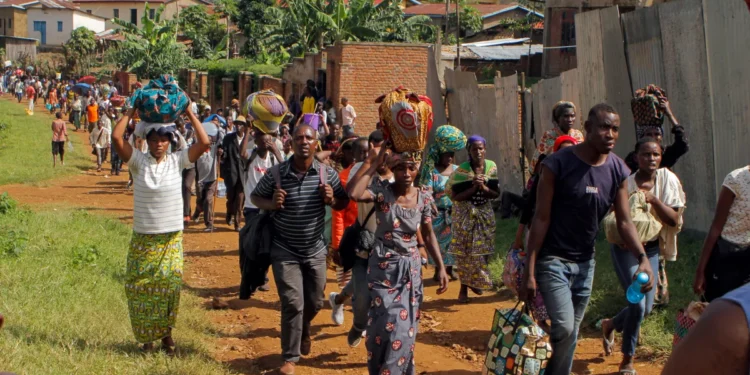Recent commitments between the Democratic Republic of the Congo (DRC) and Rwanda have paved the way for tangible progress in refugee repatriation, with hundreds of Rwandan refugees having already returned home.
The United Nations High Commissioner for Refugees (UNHCR) made this known following a meeting between UNHCR chief Filippo Grandi and DRC President Félix Tshisekedi in Kinshasa, the Congolese capital.
The discussions centered on implementing joint commitments concerning both refugees and internally displaced persons (IDPs).
According to Grandi, these commitments are already yielding concrete results.
In recent days, approximately 600 Rwandan refugees residing in the DRC were voluntarily repatriated under a tripartite agreement involving the DRC, Rwanda, and the UNHCR.
As of the latest UNHCR data, the DRC currently hosts 515,381 refugees, including 201,568 Rwandans. Meanwhile, 1,224,592 Congolese nationals are living as refugees in neighbouring countries, 78,787 of them in Rwanda.
In addition, the DRC is home to an estimated 5.92 million internally displaced persons as of March 2025, the second-highest figure in Africa, according to Grandi.
However, he cautioned that humanitarian challenges remained severe due to ongoing armed conflict in the country’s eastern regions.
More than 260 armed groups continue to operate in North Kivu, South Kivu, Ituri, Maniema, and Tanganyika provinces.
Grandi appealed to international donors, emphasising that political efforts must be supported by humanitarian assistance.
“Political initiatives must now translate into concrete benefits for people trapped in conflict situations, including refugees and internally displaced persons,” he said.
He also acknowledged the complexity of the situation:
“We are fully aware that the political context is very complex and very difficult. And of course, without political progress, it will be difficult to make significant advances in solving the refugee problem.”
In July, the DRC, Rwanda, and the UNHCR formally endorsed a roadmap for the voluntary, safe, and dignified return of refugees between 2025 and 2026.
























